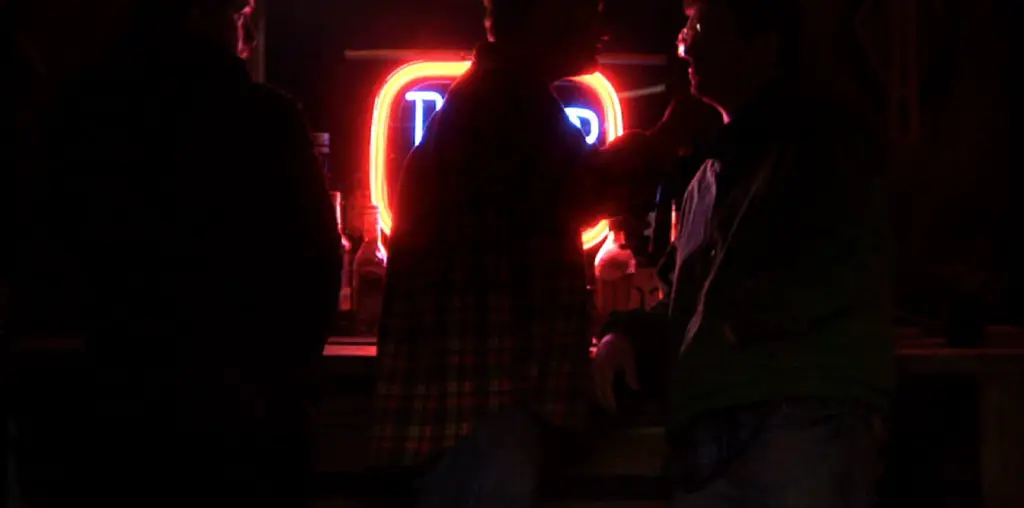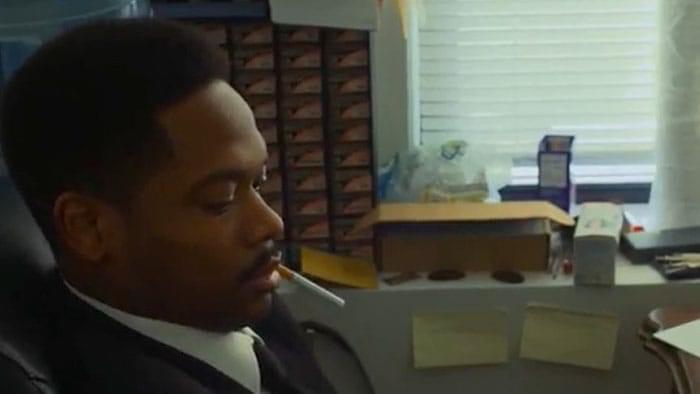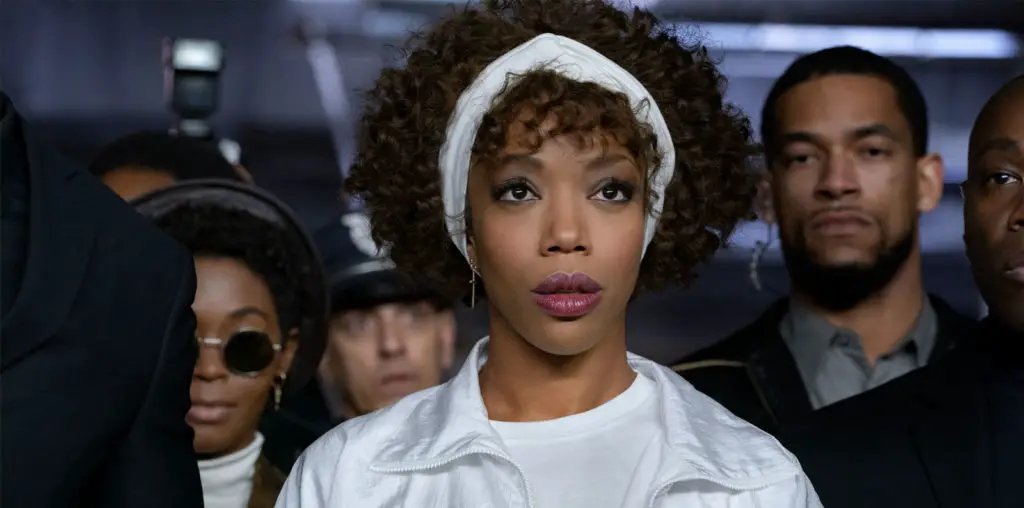
When the camera pans across the landscape I’m reminded of what William Burroughs once said about America. “America is not a young land: it is old and dirty and evil before the settlers, before the Indians. The evil is there waiting.” Wamego Kansas is no worse or better a place than anywhere else in the world, but I bet that if you squint just right on a lonely desolate night you can peer through the veil of reality and see this ancient evil Burroughs was talking about, and I’d bet that it would be just like looking into a mirror.
Firecracker is one of the few genuinely horrific films I’ve seen.
It’s hard for modern people to fathom, but around the early sixties, the time Firecracker takes place, it was literally possible to never see anything outside of the place you were born in. This was a time where television wasn’t in every house yet, where phones were common, but again not everywhere, where reading and writing were not mandatory for a job. So if you were a poor sap who flunked school in the fourth grade the odds were slim that you would ever see anything other than what you’d already seen before. You were trapped.
And being trapped is something that the White family knows intimately. The father seems to have Alzheimer’s and is slowly fading away into dementia, the older brother David (Mike Patton) is a sociopathic drunk, the younger brother Jimmy (Jak Kendall) is a mess of ticks and twitches and budding insanity; and the mother Eleanor (Karen Black) tries to find solace in prayer, ignoring the horror around her because she can’t deal with reality anymore. Leave it to Beaver this is not.
So when the carnival comes to town on the 4th of July, as it does every year, it brings delusions of a different life for both White brothers. Dave, like a man-eating flytrap, wants to draw someone new in. Jimmy, like a rabbit, wants to escape.
Carnivals tended to be dingy, dirty hideouts for criminals back in those days. More like a traveling Times Square porn theatre than anything wondrous and magical; but compared to their existence in 1964 era Wamego it must have seemed like a vision of heaven to the Whites. Director Steve Balderson illustrates this with one of the films most unique techniques. The town is shot in dreary black and white, but the carnival is in vibrant over saturated colors. I don’t know what impressed me more: the technique itself, or the fact that it’s completely transparent and doesn’t call attention to itself at all. Either way, it works.
So on that first night, Dave and Jimmy both head for the carnival. There they each have a faithful meeting with Sandra, the main signing attraction (Karen Black in a dual role).
Dave’s meeting doesn’t go so well. Sandra knows him, and they have a love/hate going. He tells her that he loves her in a way that means he feels anything but. Her reaction to him can be kindly described as “restrained terror”. Using Karen Black as both Eleanor and Sandra was a brilliant move. The obvious Oedipus complex chills you to your very soul because it gives you a very nasty idea of why mother White is so terrified of her oldest son.
Sandra tries to shake Dave off with some false bravado, but we can see right through it. She may be more outgoing than Eleanor, but her resemblance to Dave’s mother doesn’t end with her looks. She’s as much in denial about what she wants to do and how she feels about him as mom. Even more so since if she really wanted to be rid of the boy, all she has to do is tell her Boss/Lover Frank (Mike Patton again) and the Dave White problem would just “go away”, if you get my drift. Because if Sandra is an exaggerated and stylized version of what Dave wishes his mother was, then Frank is Dave without the mask of civility; Brutal, bold, crazy, fearless.
Jimmy has a better meeting with Sandra, at first anyway. She takes a motherly liking to him and tells him things that we sense his mother might, if she could. As they chat, he makes a timid suggestion that they could run away together. He likes to play the piano and maybe he could accompany her as she sings. She’s touched by his innocence, having probably not seen someone like him in a long time.
They might talk more, but Dave interrupts. He’s come back to stalk Sandra some more, he’s drunk and mean as hell. He finds Jimmy and… well I can’t tell you, but what you’re thinking is going to happen isn’t what happens. It’s truly unexpected and horrific.
The next day, to our complete lack of surprise, the oldest White brother has disappeared. But what exactly happened the night before? The genius of Balderson’s movie is that he only shows us what the White family is willing to admit to themselves, nothing more, and this is where Firecracker makes a radical shift from other films of it’s genre; because it uses an understanding of family dysfunction to drive the plot.
In a lesser film Jimmy and his family would hate Dave, but here they don’t. They love him. They hate how he acts, but they desperately need to love him so they can be the happy family they think they are. Their need is as frightening as his violence.
In a lesser film Dave’s worst sin towards his family would be his verbal and physical abuse, but here it’s his constant omnipresence that’s the true torment. The minute they think they’re alone, he’s still there.
Steve Balderson is so on the money with this stuff that it’s scary. We’re not watching some geeks off the Jerry Springer show here, but what looks like recreations of real people. Not only that, but these scenes advance the plot, they’re not just thrown in there.
This is no less than a Masterpiece.
I would say that Firecracker reminds me of The Last Picture Show directed by David Lynch and written by the Coen Brothers, but that would be incredibly unfair to this film. It’s so much more than that. However, I stand by comparing Balderson’s script with Larry McMurty’s work, it’s as rich and alive as anything McMurtry’s done.
So… how’s Mike Patton? That’s the big question isn’t it? Well, it’s funny. In the role of Dave White, he’s excellent. Truly a great performance, he plays Dave as a coiled snake who knows he’s wrong, but is so filled with rage and hate and a sense of entitlement to do anything he wants that it’s made him a monster with a smile. However, as Frank the Carnival owner he’s just the slightest bit hammy. Nothing horrible, it’s just noticeable compared to his note perfect David.
The rest of the cast is impeccable; everyone from first timers like Jak Kendall to old pros like Karen Black. I just can’t say enough good things about the film. I walked out of the screening exhilarated that there was still hope for American movies, and any film that can do that to someone as cynical as me has got to be reckoned with.


